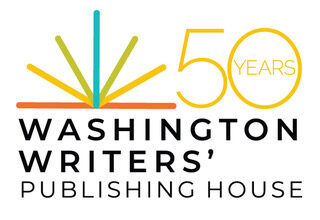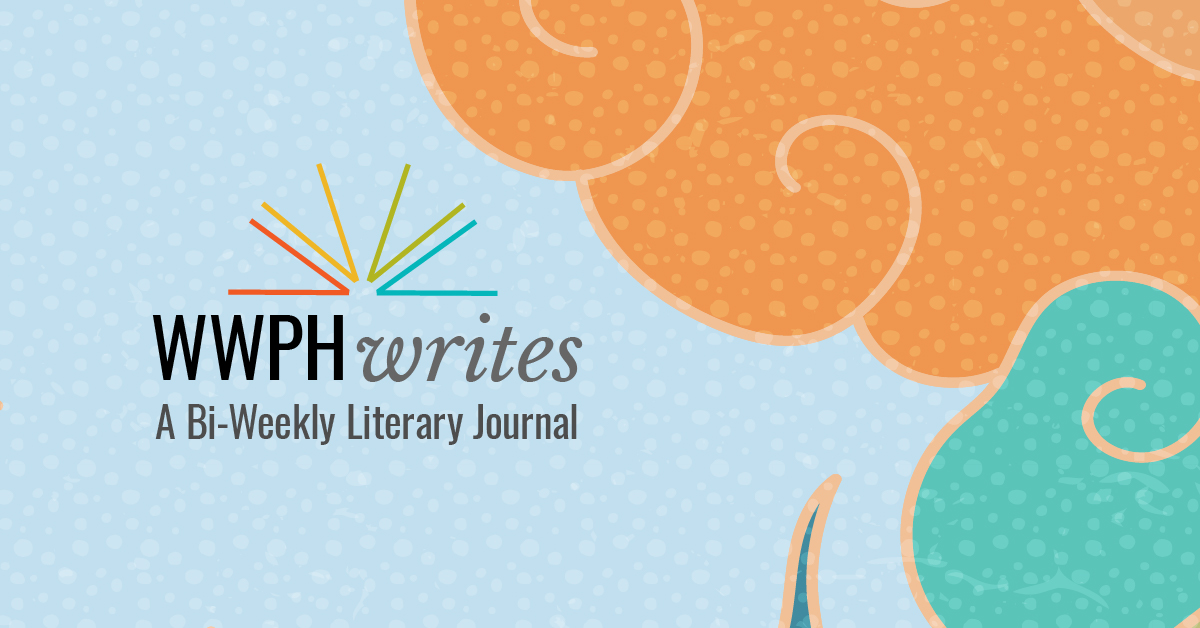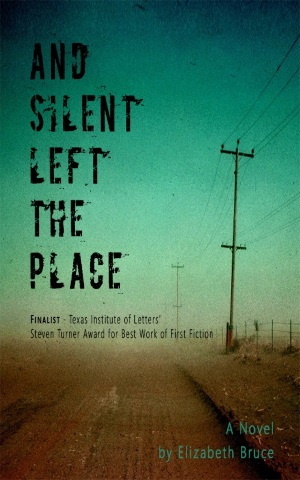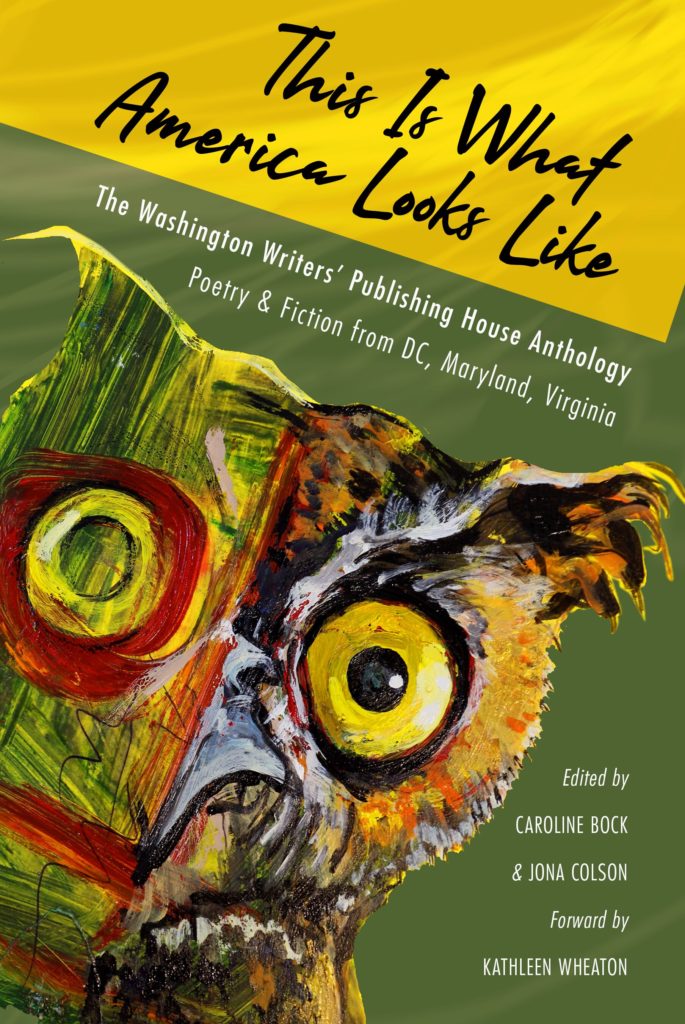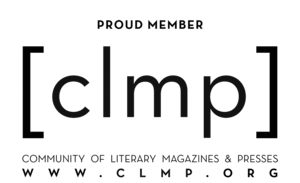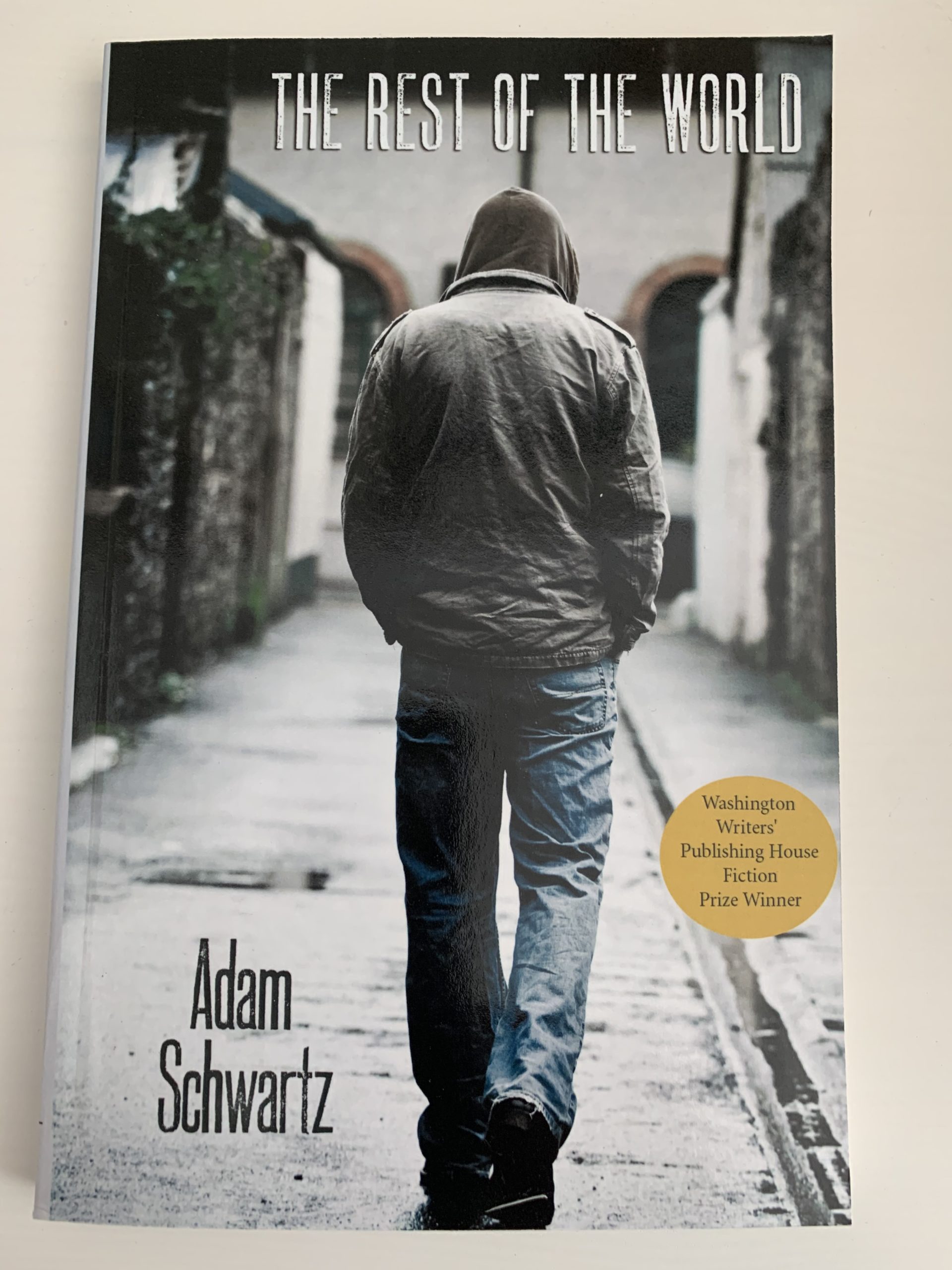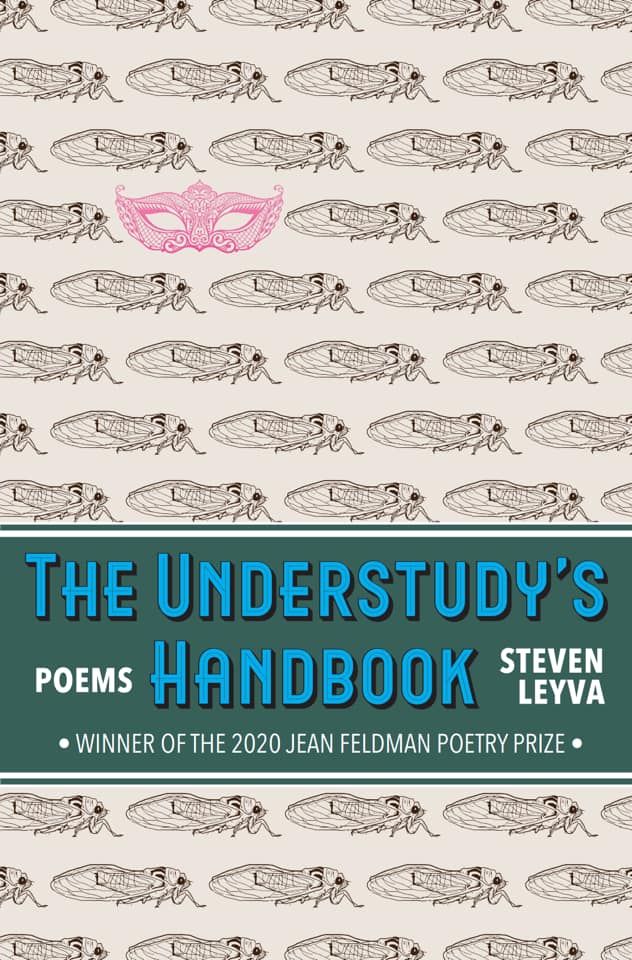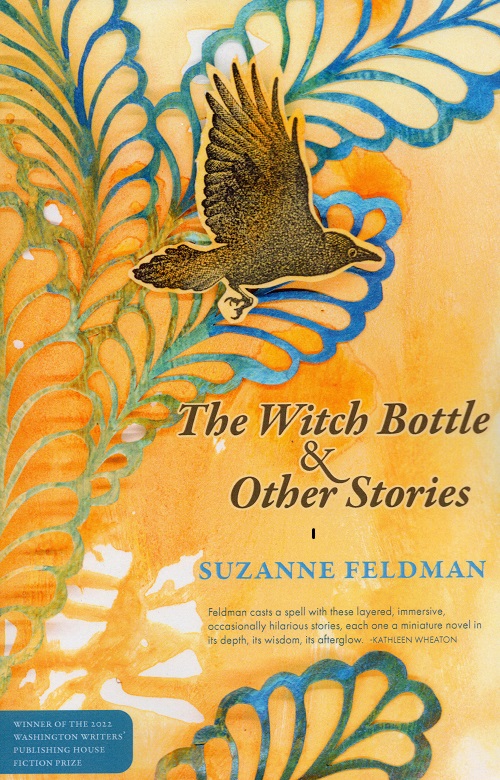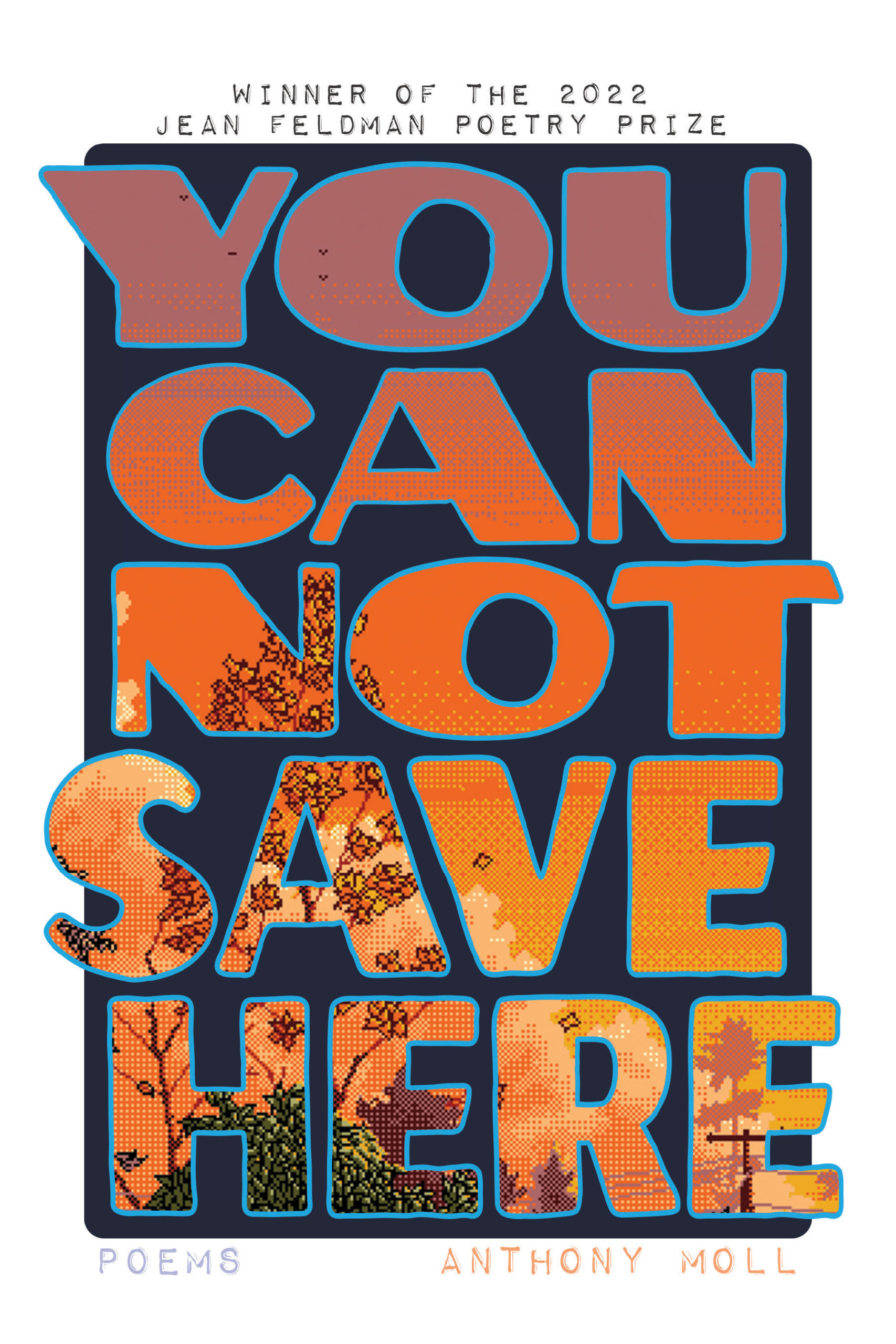WWPH Writes: Issue # 34
Welcome to Issue 34, an insider’s sneak peek at work by our award-winning writers Anthony Moll and Suzanne Feldman!
Our books by our 2022 award-winners, Anthony Moll and Suzanne Feldman, will be published on September 28th. We will celebrate with a reading at Politics & Prose Bookstore (main store on Connecticut Avenue) on Sunday, October 2 from 3-4 pm. This will be our first reading since the pandemic at Politics & Prose, the landmark independent bookstore in Washington D.C., and all of you are invited!
Our 2023 manuscript contests in poetry, fiction, and creative nonfiction are now open through November 1st–$1,500 honorarium, publication, editorial guidance, and launch support. We are eager to see your book-length work. More details are here.
Read on to excerpts from YOU CANNOT SAVE HERE by Anthony Moll, winner of the 2022 Jean Feldman Poetry Prize, and THE WITCH BOTTLE AND OTHER STORIES by Suzanne Feldman, winner of our 2022 Fiction Award!
Caroline Bock
Fiction Editor, WWPH WRITES
WWPH Writes: Poetry
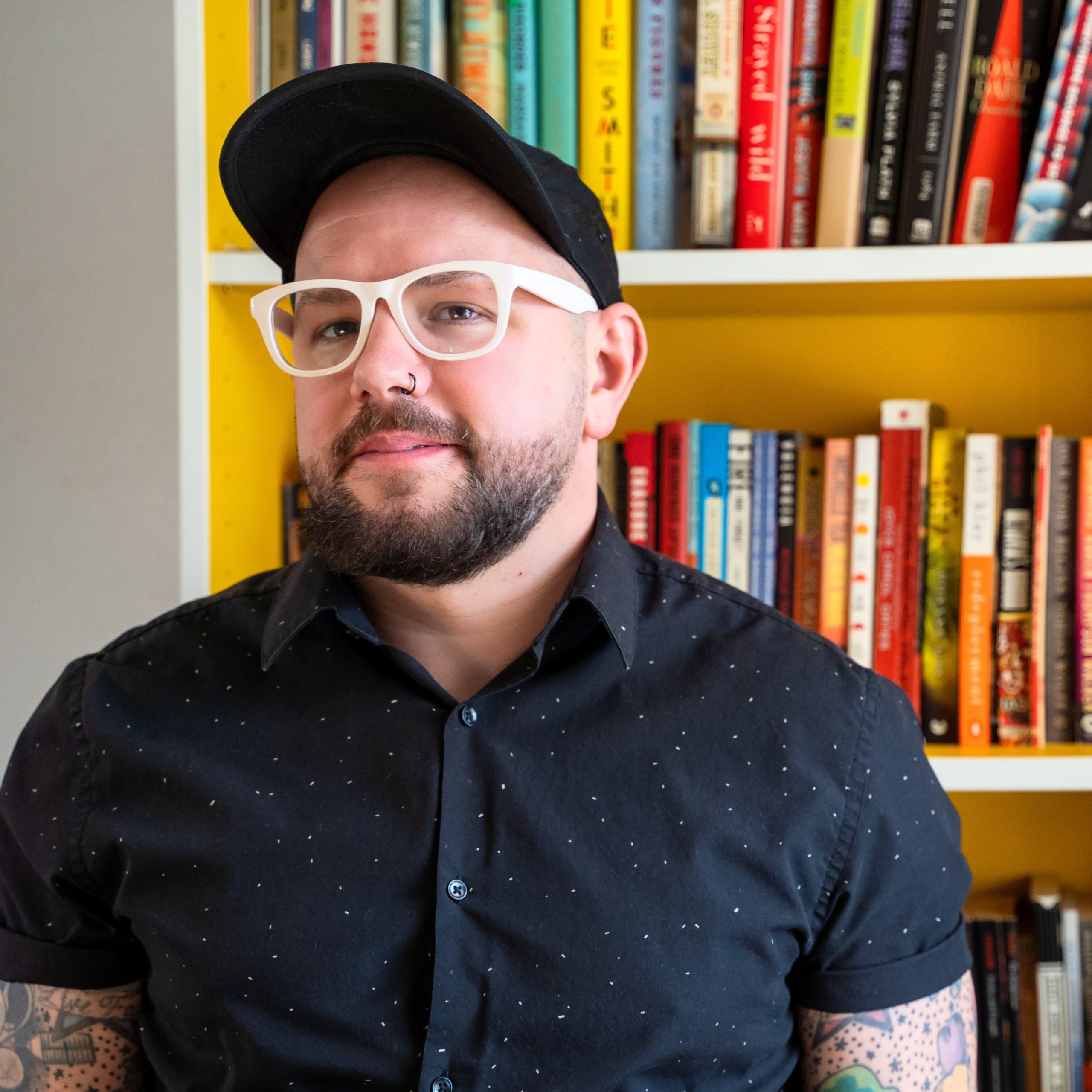
Anthony Moll is a Queer poet, essayist, and educator. They are the author of Out of Step: A Memoir, which won the Lambda Literary Award and the Non/Fiction Collection Prize. Anthony is a Ph.D. candidate in English, and they hold an MFA in creative writing & publishing arts from the University of Baltimore. You Cannot Save Here, winner of the Jean Feldman Poetry Prize, is their second full-length book. They live in Baltimore.
Context: I was writing poems about the end of the world when the world as we knew it ended. The pandemic shifted so much for all of us, and my life and poems were no exception. I had already spent a couple of years writing poems for You Cannot Save Here, but when COVID hit, rather than speaking of those crises that approach us slowly, I found myself unable to ignore the sudden and omnipresent ways that the pandemic impacted us. This poem, written months into the lockdown, reflects on the small moments that COVID had stolen from us that summer.
You Cannot Save Here
After Rilke and Fauci
After 148 days inside
stacked, end-to-end
from hoodie and heater
to straining central air
I reconsider the body
problem. On one hand
who needs hands, a ribcage
stuffed with disquiet
the soft tissue of desire
that dark center where
the narrative gets jammed up
but, fuck, do you remember
the four of us, and both dogs
tucked into a hatchback, howling
Dolly lyrics ‘til we went raspy?
Or do you recall stone
soup picnics in the park?
The mosquitos mauling my leg
as we passed my favorite gay
poems back and forth in the grass
You held open the thin book with one
hand, pulled a pit from your sucking lips
with the other. I used my index
fingernail to press tiny crosses
into the raised pink of my skin
*
Context: An aubade is a poem for morning, and traditionally a love poem. It is the song shared by lovers as they depart at sunrise after a night together. This poem pursues that tradition in a way that colors a bit outside of the lines, but it remains true to the spirit of the form: morning, love, lamentation, a connection between two people and an underlying optimism. It speaks to the possibilities that connectivity and beauty offer us in apocalyptic times. (This poem previously appeared in the Maryland Writers’ Association 2020 Anthology.)
Aubade for An Ending That Doesn’t Arrive
There are mornings (the rare mornings
when you’re up before the heat, on walks
or rides out to an urban reservoir
belted by wildflower and spike iron
fence, belted by bike path, belted by
thoroughfare, belted by row-home
tucked into city misremembered
by everyone except the six a.m. sun
summoning the hum of human
and roadway churn, slowly at first
so as not to shock the stillness still
lingering, nautical dawn left settled
on bus stop bench, on unwashed
marble stoop step, on those
trees near the low-rise housing
on Caroline Street where someone
some management someone, some
unromantic government has trimmed
them to nothing but tall trunks, freed
of any ornament, leaf, stem, branch
like the reservoir, where, while
blessing the water for future use
workers stirred it until unpotable
and the bike path is halved
which makes the odd marble
tower feel out of the city’s way
an accidental setting, not a place
you aim, but somewhere you
stumble, but an old jogger
has stopped there, in firstlight
with half the city sprawling
out below, and hands-on-hips
he tells you how community once
fought to keep it up, just so
the two of you, standing here
as the city wakes up, could
pause) when you imagine
a world that ends more
slowly, a world where
The End never arrives at all
© Anthony Moll 2022
WWPH Writes: Fiction
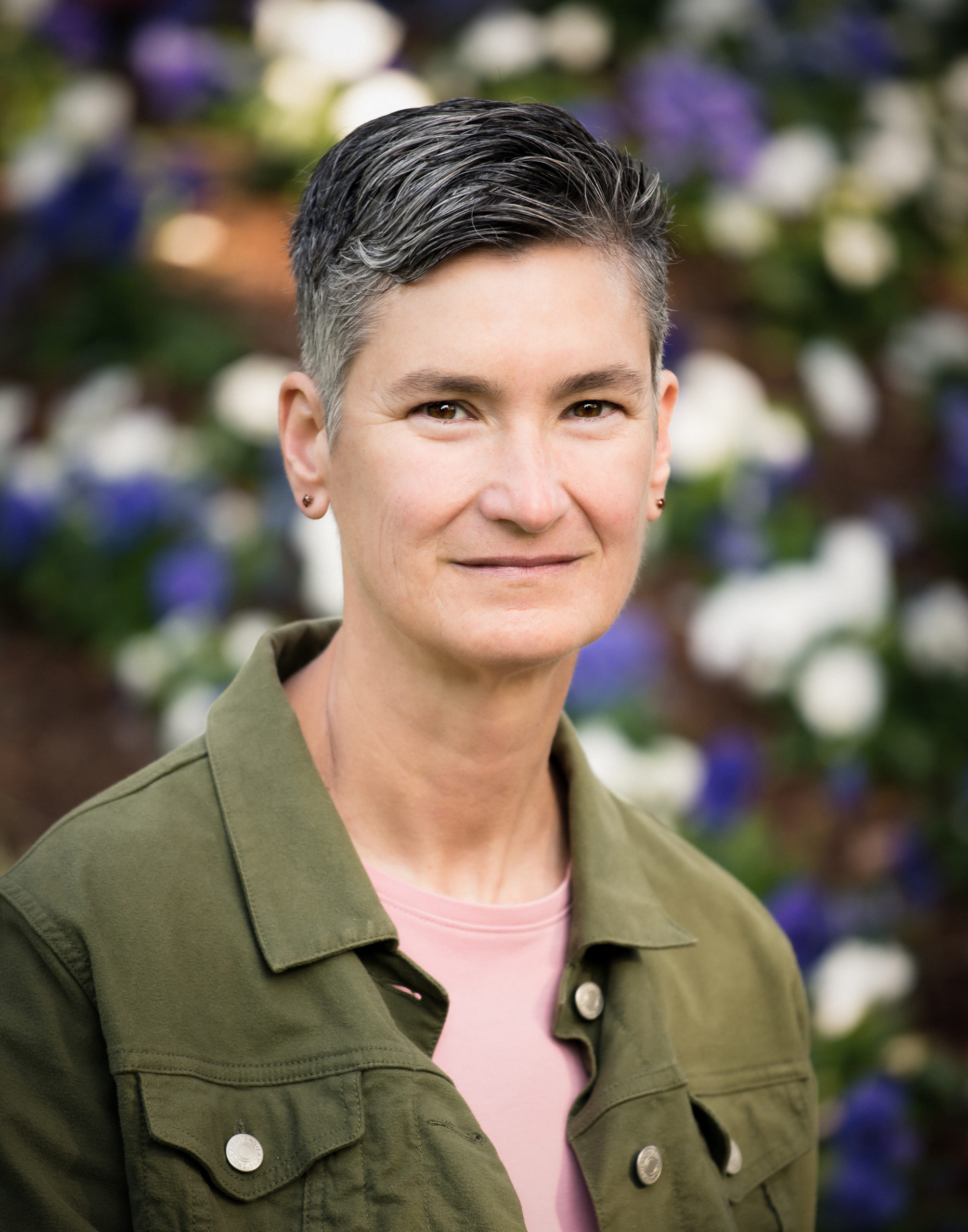
Suzanne Feldman received her Masters in Creative Writing from Johns Hopkins University. She is the author of five novels, including Absalom’s Daughters (Holt, 2016) She was a Walter Dakin Fellow at the Sewanee Writers Conference in 2019. Her latest novel, Sisters of the Great War, (Mira/HarperCollins, 2021)has been nominated for a Lambda Literary Award. In 2022, she was awarded a grant from the Maryland State Arts Council and won the Fiction Award from the Washington Writers’ Publishing House for The Witch Bottle and Others Stories. Feldman lives in Frederick, Maryland.
Context: This story is about a man with a few perception problems. He thinks his neighbor is a witch—a poisoner—and he’s positive he’s her target. Sure, she grows nightshade on her porch and has a black cat. But she couldn’t possibly be a witch. Right? This Pushcart-nominated story was first published in Gargoyle Magazine and runs through a ridiculous assortment of the main character’s personal issues as he tries to decide what he should do to protect his family and himself from a pretty unlikely threat. Find out why he buries blue bottles in his backyard—while his wife isn’t looking! Read on to the excerpt!
The Witch Bottle
You know it’s irrational but you believe the nosy woman who lives next door is a witch.
Not the kind of witch who casts spells, but a poisoner. You know that there is such a thing because you’ve found it on the internet. You’ve found the antidote too; to avoid being poisoned by witches, take a blue bottle, fill it with your own fingernail clippings and hair, six metal nails and a little urine. Cork it and bury it upside down in the ground. That’s what it says on the internet. You’ll be safe from the most intimate sources of poison. The question of why she wants to poison you is a good one. Maybe you scared her cat when you pulled into the driveway. Maybe she was using those binoculars she keeps on the back porch, which she says are for watching birds, but didn’t like what she saw when she was peeping through your blinds from her own house. Maybe she didn’t like the way you make love to your wife, not that it’s any of her business, not in any way at all, even if your wife isn’t all that pleased with your sexual technique and puts up with it, and maybe said something to her girlfriends which may have somehow gotten back to the witch next door. Maybe the witch thinks she’d be doing your wife a favor by getting you out of the way.
The witch has a basement full of poisons and potions, if you listen to your kids. She lives alone and has no family to speak of. You tell your kids that it’s nothing but a Halloween story that’s gotten out of control, but deep in your heart, while you’re looking around in the liquor store, you’re keeping an eye out for something that comes in a blue bottle. You find two things; cheap Rieslings and a Bombay Blue Gin. You buy a couple of bottles of Riesling because you think you’ll drink that faster than the gin. The wine is cheap enough that you could just pour it out and use the bottle right away. You wonder how you’re going to explain the fingernail clippings, the hair and urine to your wife, much less the act of burying something in the backyard. The backyard is a carefully landscaped postage stamp without a lot of room for a secret burial of a bottle or even a dead pet. When the dog died under suspicious circumstances last year you left the body at the vet’s to be cremated, and now the dog sits in a solemn wooden box on the mantle over the gas fireplace. You blame the witch. You know you do.
You never talk about her if you can possibly help it. You think she might be a Lesbian, even though she never has any company, male or female. You’ve never trusted women who have no use for men. It makes you feel insecure, like a parasite on the back of her version of society. You would feel perfectly justified in poisoning her first before she could get to you.
Your wife and children are mostly oblivious to the witch next door and have never delved into the internet looking for preventions from poisoners but you fear for yourself and your family. The only one who you think might be safe is the family cat, which jumps the fence between your house and hers without hesitation and sits, sunning itself on her patio while the witch’s cat watches jealously through a window.
You can’t say exactly when you pinned her as a witch. Just a feeling about her as she puttered around in her own overgrown yard. It seems like she cultivates weeds. You’ve looked some of them up, like the burdock and lambs ear, which seem harmless enough—even medicinal—but then there’s the patio with the nightshade growing right out there in the open in its own pot. A sure sign of a poisoner?
At block parties, which happen twice a year, in the summer after school’s out and in the fall just before Thanksgiving, she makes cookies, which, you have noticed, no one ever touches. It’s tempting to ask the neighbors what they think. It’s tempting to eat a cookie yourself—the hospital is only ten minutes from your house after all. How quickly could a nightshade cookie kill you? You have never seen her eat one of her own cookies, however and so you never follow through on this impulse.
On Halloween, she dresses as a fairy and hands out Milkyways, Snickers, 3 Musketeers, Hershey’s Kisses and other pre-wrapped industrially produced candy so you don’t worry about your kids eating that. What idiot witch would hand out poisoned candy on Halloween anyway, when everyone’s on the lookout for razor blades in apples and glass shards? Besides, you are her target, not the neighborhood kids. You’re certain of that.
One day, between Halloween and Thanksgiving, you run into her at the grocery store. You’re buying milk, bread, toilet paper, and sanitary napkins. She takes a look at your cart and gives you a strange sort of smirk, like you’re both stockpiling for a winter storm and at the same time you have a wussiness in you that allows you to be pushed around by your wife to get the most intimate products the store has to offer. She’s smirking at your manliness and your unmanliness at the same time. You don’t know what to say, even when she says “hello.” You just push your cart past hers and pray you don’t end up in the same checkout lane. How terribly awkward would that be? You pick up a steak and rush to pay and leave.
You don’t see her again for days after that.
©Suzanne Feldman 2022
WWPH Community News
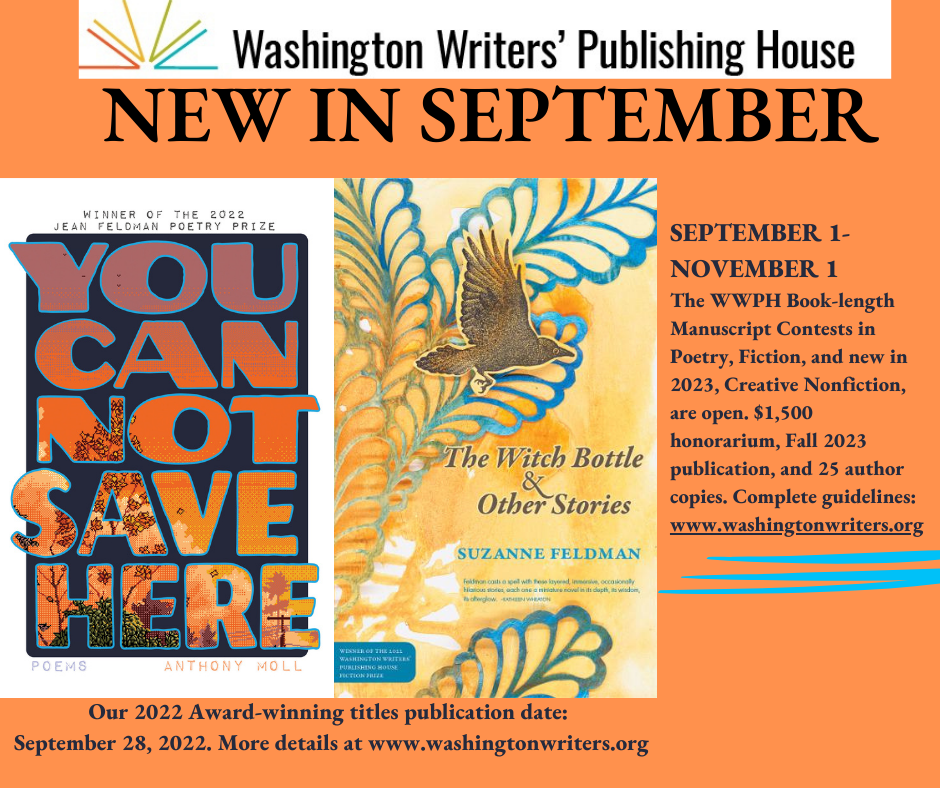
*NEW! The “TOP 5 WWPH INTERVIEWS”! A new feature on our website will share pithy, thought-provoking insights from DMV writers. For our first installment, we only thought it only fitting to give the first five questions to our 2022 award-winning writers, Suzanne Feldman and Anthony Moll. Find their interviews here.
*SHARING GOOD NEWS ABOUT WWPH! AWP’S WRITER’S CHRONICLE spotlights the Washington Writers’ Publishing House in their first all-digital issue. READ here.
*SUBMIT! We are looking for poetry and fiction that celebrate, unsettle, and question our lives in the DC, Maryland, and Virginia areas (DMV) and our nation. We seek lyrical and dynamic work and believe in cultivating a diverse and inclusive environment of content, form, risk, and experimentation. New perspectives and voices with craft and fierceness are strongly encouraged to submit. It’s FREE to submit, but you must live in the DMV. We are reading right now for January 2023 — if you have something that will inspire us for the new year– Submit here.
The WASHINGTON WRITERS’ PUBLISHING HOUSE has a Bookshop! BUY OUR AWARD-WINNING BOOKS and help us keep this nonprofit, cooperative, literary press strong for writers and readers like you. Click here and browse all our titles at our bookshop.
Thank you for being part of the WWPH Community!
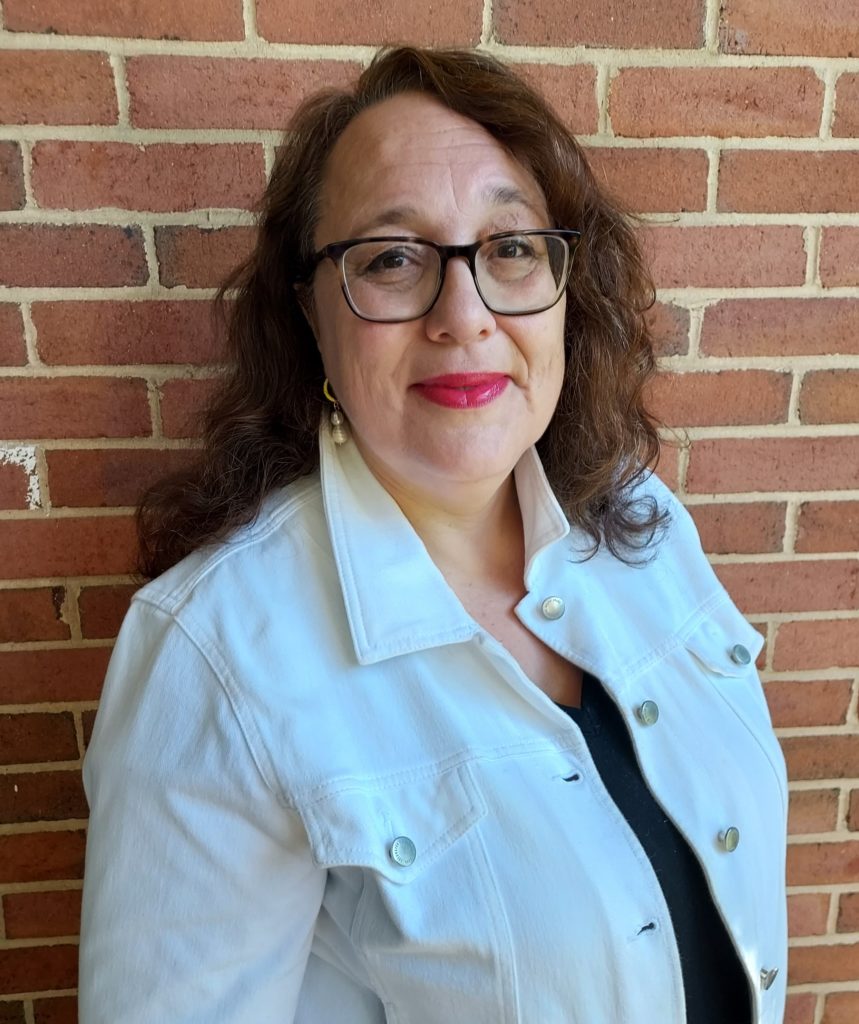
Caroline Bock
Fiction Editor, WWPH Writes
President, WWPH
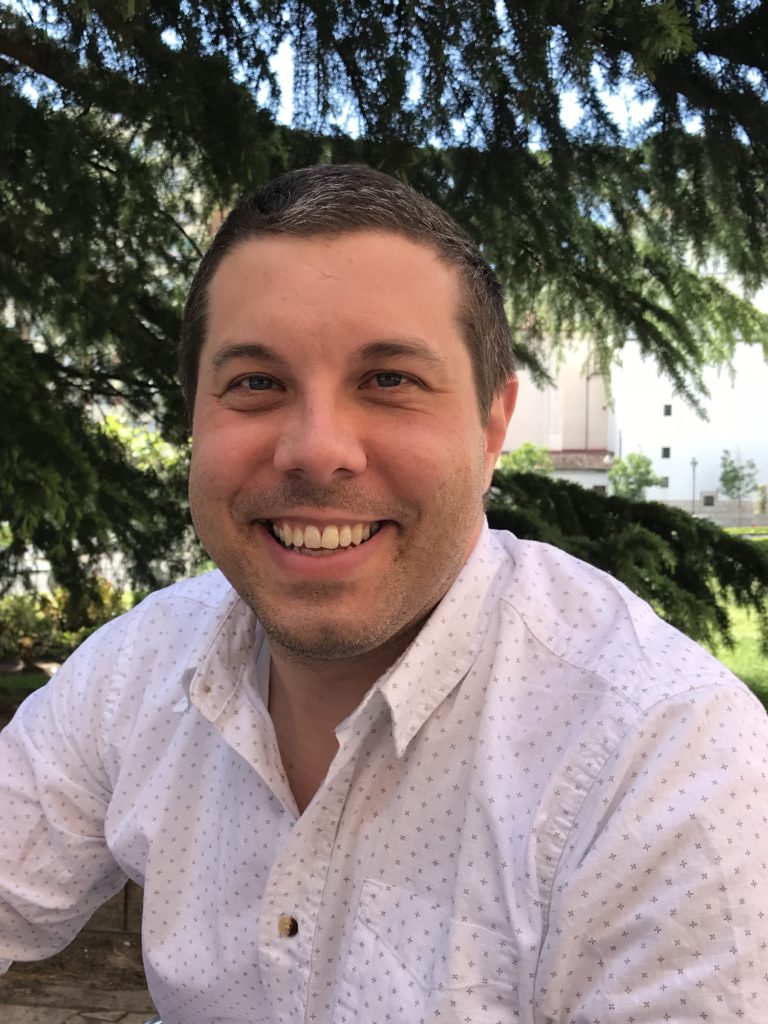
Jona Colson
Poetry Editor, WWPH Writes
President, WWPH
